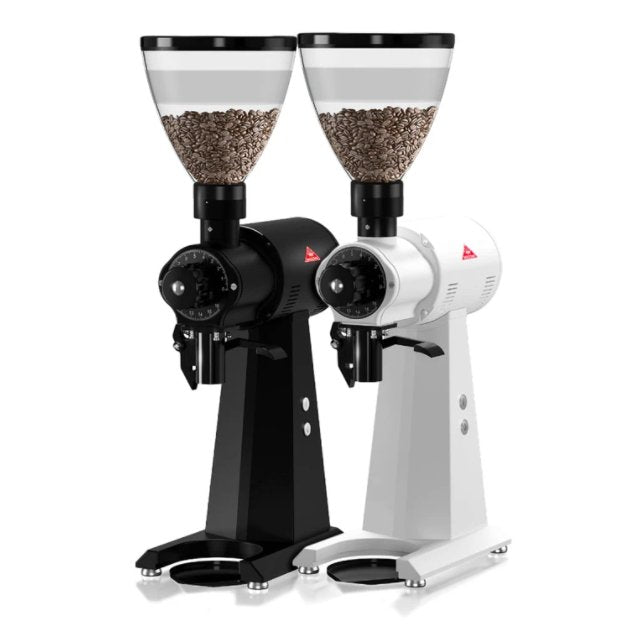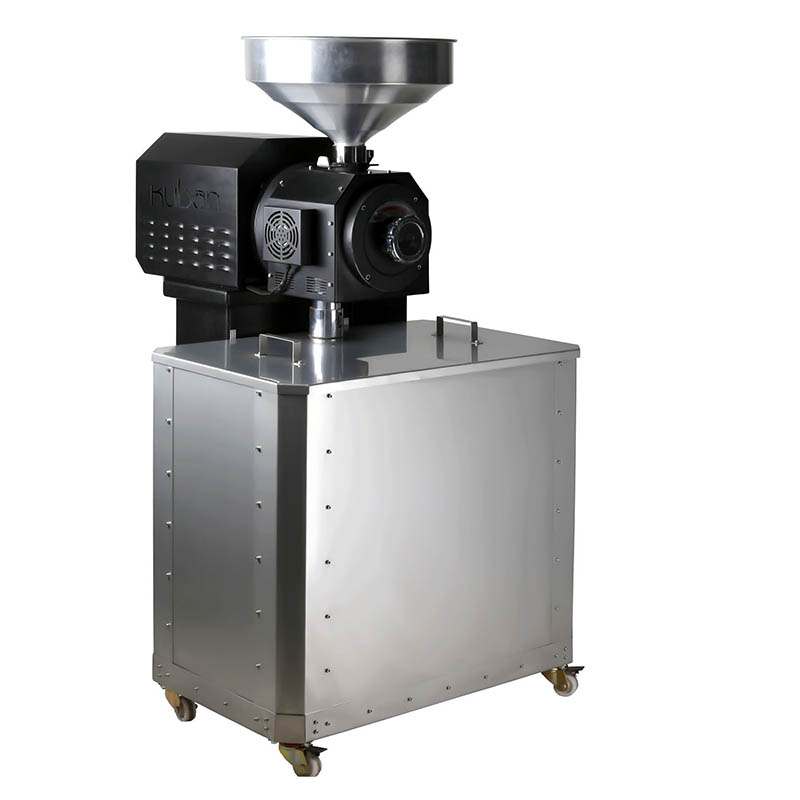Industrial Coffee Grinder: Important for Coffee Houses and Coffee Bars
Industrial Coffee Grinder: Important for Coffee Houses and Coffee Bars
Blog Article
How to Select the Perfect Industrial Coffee Mill for Your Company
Picking the optimal industrial coffee grinder for your service is a multifaceted decision that calls for mindful factor to consider of several critical factors. Furthermore, recognizing the various types of mills offered can dramatically affect your functional efficiency.
Assess Your Grinding Requirements
When picking a commercial coffee grinder, one should first examine their grinding demands to make sure optimal performance and uniformity. This initial analysis involves recognizing the quantity of coffee to be refined daily, along with the preferred work size for numerous developing techniques. A high-capacity grinder may be necessary for companies serving big quantities of coffee, while smaller operations may find a more portable version sufficient.
Furthermore, it is important to take into consideration the kinds of coffee beans being utilized, as various beans might call for specific grinding methods to achieve the best flavor profile. For example, oily beans might necessitate a grinder developed to manage such qualities without clumping or overheating.
Another vital aspect is the needed work uniformity. Specialty coffee companies frequently demand accurate grind dimensions to improve extraction and taste, making it crucial to pick a mill that can deliver uniform outcomes. Ultimately, examining the available space and electrical needs will aid in choosing a mill that fits effortlessly right into your operational operations. By extensively examining these variables, companies can make informed choices that straighten with their coffee grinding demands, eventually bring about a superior item and satisfied clients.
Understand Mill Kind
Recognizing the different types of commercial coffee mills is essential for making a notified option that meets particular operational requirements. There are largely 2 categories of mills: blade grinders and burr grinders.
Blade grinders make use of spinning blades to slice the coffee beans, resulting in an irregular grind dimension - Industrial Coffee Grinder. While they might be more inexpensive, they are often not suitable for business applications where accuracy is important
On the other hand, burr mills offer a much more consistent work by crushing the beans between two surfaces. They can be further categorized into flat burr and conical burr mills. Apartment burr grinders provide a consistent grind dimension and are usually favored for espresso preparation, while conelike burr mills are flexible and can handle a variety of mixture techniques, from espresso to French press.
When selecting a mill, take into consideration the specific demands of your service, including wanted work consistency, production quantity, and the sorts of coffee drinks you intend to use - Industrial Coffee Grinder. Each mill type has its limitations and benefits, so understanding these subtleties allows informed decision-making that straightens with operational objectives
Evaluate Grind Size Uniformity
Accomplishing work size uniformity is necessary for producing top quality coffee, as variants in bit dimension can dramatically affect removal and flavor. When picking an industrial coffee mill, it is important to evaluate exactly how well the machine keeps uniformity in work size across various batches. Inconsistent work sizes can bring about uneven removal, resulting in a cup that might taste excessively bitter or weak.
To evaluate work dimension uniformity, consider mills with functions such as adjustable work settings and top notch burrs. Burr mills, particularly, succeed in producing uniform bit dimensions compared to blade grinders. The product and shape of the burrs play a crucial duty, with stainless-steel and ceramic options offering longevity and precision.

Consider Production Capability
In the hectic globe of coffee manufacturing, taking into consideration manufacturing ability is paramount for businesses aiming to meet demand without sacrificing quality. The manufacturing ability of a commercial coffee mill directly affects a firm's capacity to accomplish orders successfully, take care of stock, and respond to varying market trends.
When assessing manufacturing ability, it is crucial to review the grinder's outcome rate, generally measured in extra pounds per hour. This dimension ought to align with your company's projected sales quantity and development targets. A café with a high turn over may require a read this post here mill that can process numerous hundred pounds daily, while a smaller procedure might suffice with a reduced capacity version.
Furthermore, consider the sort of coffee being processed. Various beans and blends may impact grinding rate and effectiveness, necessitating a mill with the ability of taking care of diverse manufacturing requirements. It's also worth factoring in the mill's capacity to preserve regular high quality under high output conditions, as any kind of changes can influence the end product.
Eventually, picking a grinder that matches your service's production capability will certainly guarantee you continue to be competitive and receptive to client expectations.

Budget Plan and Maintenance Aspects
When examining the right industrial coffee mill, maintenance and budget plan variables play a considerable duty in the overall decision-making process. An initial investment in a high-quality grinder can produce lasting advantages, yet it's necessary to establish a clear budget plan that lines up with your service's functional demands. Consider both the acquisition rate and possible functional prices, such as power intake and substitute components.
Maintenance is an additional essential facet that can affect your spending plan. Industrial coffee grinders require normal maintenance to ensure optimum performance and longevity. Evaluate the manufacturer's recommendations for upkeep, consisting of cleansing routines and components replacement, as these will affect long-term functional expenses. Furthermore, think about the availability of solution and assistance, as reputable support can reduce downtime and repair expenditures.

Spending in a grinder that is long lasting yet easy to keep can save cash over time. While lower-priced alternatives might be tempting, they may sustain higher upkeep costs and minimized efficiency. Inevitably, stabilizing first costs with lasting maintenance and operational performance will assist you to the very best selection for your company's coffee grinding demands.
Verdict
Selecting the excellent industrial coffee grinder necessitates a detailed examination of grinding needs, grinder types, grind dimension uniformity, manufacturing capacity, and financial considerations. By prioritizing these variables, businesses can guarantee the purchase of a reliable, efficient grinder that pop over here meets particular functional needs. An appropriate mill not just enhances the quality of the coffee created yet also contributes to the general success and productivity of the enterprise. Lasting performance and upkeep ease should remain central to the decision-making process.
Specialty coffee companies frequently demand precise Industrial Coffee Grinder grind dimensions to boost removal and flavor, making it vital to pick a mill that can provide uniform results. Apartment burr mills provide a consistent work dimension and are usually favored for coffee prep work, while cone-shaped burr grinders are functional and can manage a variety of brew approaches, from espresso to French press.
When selecting a commercial coffee mill, it is critical to assess exactly how well the machine keeps uniformity in work dimension across different sets. Burr grinders, in certain, stand out in producing consistent particle dimensions compared to blade mills.Choosing the optimal industrial coffee mill necessitates a thorough analysis of grinding requirements, grinder kinds, grind size uniformity, production capability, and budgetary factors to consider.
Report this page